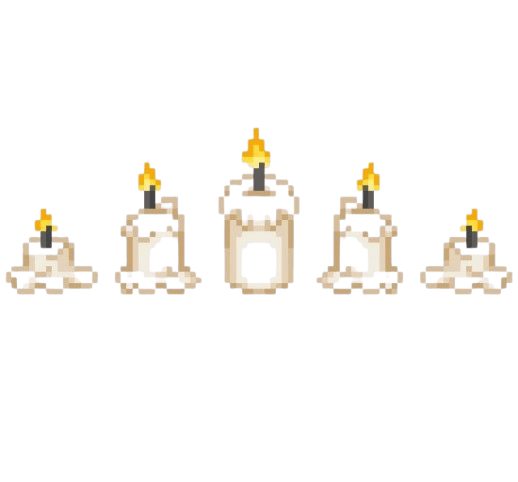- You got a minute?
- Posts
- 💳 The Cost of your Attention
💳 The Cost of your Attention
Think of energy like a budget: every scroll, task, and meeting has a price tag.

Hi there,
Welcome back to You Got a Minute by LifeAt. If you’re new here, you can get caught up by checking out our blog here!
If you’re interested in sponsoring a spot on our ever-growing newsletter, click here 🌱

Last week we talked about the September reset - that gentle nudge into new routines and seasonal rhythms. If September is your reset button, then your energy budget is the plan you make after pressing it.
Think about it: some weeks it feels like you’ve spent your entire paycheck of energy by frickin’ Tuesday. You’re dragging yourself through the rest of the week, overdrafting on caffeine and willpower. Other weeks, you’ve somehow managed to pace yourself - you’ve got just enough saved up to get through Friday without collapsing. What makes the difference? It’s not just how much energy you have, but how you’re choosing to actually spend it.
There are different kinds of budgets
Your energy works a lot like money in the bank. You can’t just spend it on everything and expect not to run out. But most of us live as if the supply is endless, throwing it at work deadlines, group chats, news scrolling, and family obligations until we’re running on fumes.
Every task, every conversation, every notification has a cost. Back-to-back Zoom calls? Expensive. A walk outside at lunch? Surprisingly affordable, and sometimes it pays you back more than you spent on it.
When you start to see energy as something you budget (not just something you burn through) the day stops feeling like a race you’re losing and starts feeling like a set of choices you actually get to make. You begin to notice the difference between something that drains you $50 worth of energy versus something that costs $5. And suddenly, you realize: you’ve been bankrupting yourself on things that don’t even matter that much.
Practical ways to spend your energy
Here’s where the metaphor becomes practical. Just like you’d keep track of money, try keeping track of energy for a few days. No spreadsheets needed—just small notes.
Track your spend. Ask yourself: What actually drained me today? What topped me up? Maybe you notice your morning scroll through TikTok leaves you weirdly exhausted, while chatting with a friend for 10 minutes leaves you feeling lighter. That’s valuable info.
Set spending priorities. If you know you’ve got a big presentation or social event coming up, budget for it. Cut back on less important drains earlier in the day—maybe you skip one optional meeting or postpone a few emails until later.
Create buffers. Think of this as your emergency fund. If you blow through more energy than expected, what’s there to catch you? A nap, a short walk, putting on a playlist and lying on the floor for a few minutes. Tiny resets keep you from fully overdrafting.
You don’t have to make it perfect or balance it to the penny. The point is to stop spending blindly. When you pause long enough to notice what things really “cost,” you naturally start protecting your energy a little better.
So why does this matter?
Here’s the bigger picture: when you treat your energy as limited (because it is), you start making different choices. Saying “no” to a meeting doesn’t feel like laziness—it feels like financial literacy for your nervous system. Taking a 10-minute break in the middle of the day doesn’t feel indulgent—it feels like putting money aside for the things that actually matter.
And maybe the most important part: your energy budget isn’t just about surviving the week. It’s about making sure you have something left to invest in the people, projects, and dreams that mean the most to you. If you’re always broke on energy, the things that truly light you up—the stuff that makes life feel meaningful—never get funded.
📓 Journal Prompt
“If I gave myself an energy budget this week, what would I actually want to spend it on?”
Think about it the same way you’d think about money: which areas are worth investing in, which ones need to be cut back, and where could you give yourself a little more breathing room?
Your energy is precious, friend
The September reset gave us a reason to pause. Your energy budget is the step that makes the pause stick—it’s the practice that turns good intentions into something you can actually live inside of.
This week, try noticing how you’re spending, saving, and investing your attention. Don’t stress about perfect balance. Small tweaks—like skipping that one scroll session, saying no once, or building in one buffer moment—can change the texture of your entire week.
Your attention is currency. Spend it like it matters—because it does.kly suggestion
with love,
🌱 rorrie

LifeAt: Focus with joy
LifeAt isn’t just a productivity tool—it’s your personal focus sanctuary. With a Pomodoro timer, over 1,000 aesthetic virtual spaces, cozy soundboards, and a planner that actually keeps you on track, it’s built to make work feel good.
✨ Romanticize your workflow. Try LifeAt today and create a routine you’ll actually look forward to.

Reader Spotlight ❤️
We want to feature our community bi-weekly! Submit your profile here!


Real or AI 🤖
Last week, y’all were spot on the money - Image 1 was the odd duck! 81% of you chose Image 2 as the real(ly) peaceful duck pond 🦆

This week, picture yourself wandering into your favorite Asian grocery store, scanning the shelves lined with bright packets of ramen. The colors, the textures, even the way the packaging catches the light—it all feels so familiar. But one of these aisles isn’t as it seems.
Can you tell which ramen aisle was captured in real life, and which one was generated by AI?


